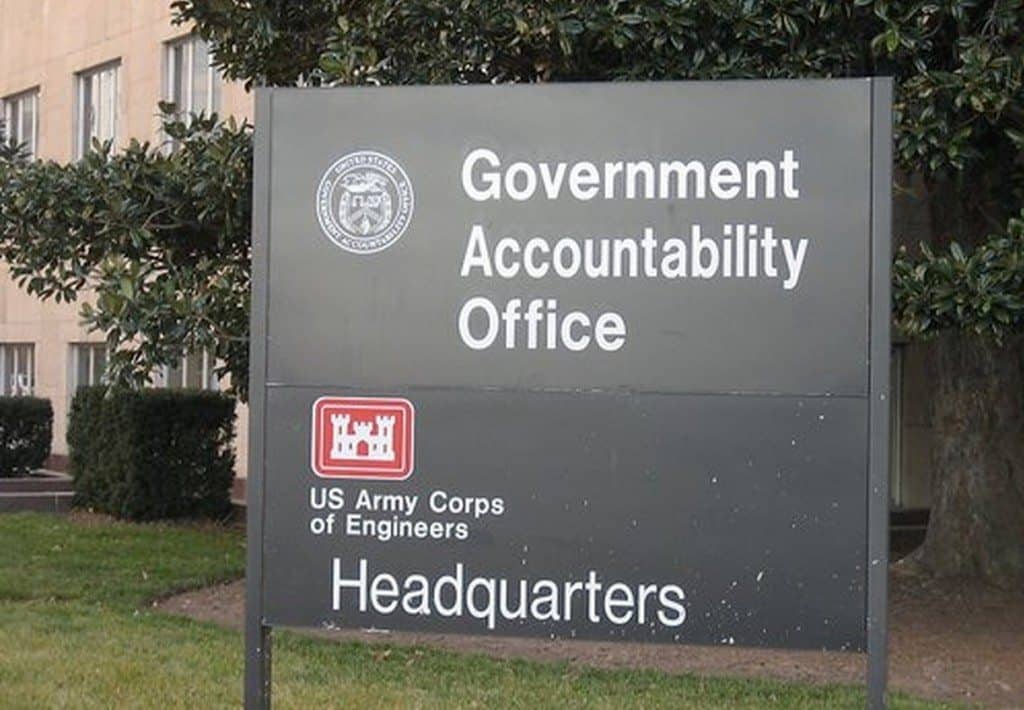GAO Audit Shows 63% Of Suicide Cases Improperly Processed

This raises some immediate questions for me.
How can VA improve its previously flawed suicide program if it fails to consistently track the data? Does the faulty data help VA bureaucrats make their numbers look better?
A report from the Government Accountability Office found protocols for treating veterans with depression were broken. Patient data was flawed, inconsistent and incomplete.
Here is a brief breakdown of the stats based on the audited sample:
- 10% of vets treated by VA have major depressive disorder and 94% of those are prescribed anti-depressants
- 86% of audited files of vets on anti-depressants did not receive a follow up evaluation within the required 4-6 weeks
- 40% of the same group of veterans on anti-depressants did not receive follow up care within the recommended time frame
- 63% of suicide cases were inaccurately processed
Here is how the numbers break down based on the presumption that VA treats 5,000,000 veterans and assuming the audit is accurate across the entire VA. This means 500,000 veterans have major depressive disorder and 470,000 of those are prescribed anti-depressants. This means it is possible that 404,200 veterans on anti-depressants are not receiving timely follow up assessments.
With data integrity breaches like this, it is no wonder GAO cited the suicide data VA relies on as “not always complete, accurate, or consistent.”
Given the consistent pattern of ineptitude at treating suicide, these chronic errors certain seem to indicate VA is failing our veterans on purpose.
Do you think those in charge of data collection for suicide received bonuses last year?
Sources:





Medications are often misunderstood and misrepresented as a cure for a behavior, which is a big NOT. Psychotropic meds are for symptom reduction as high blood pressure meds reduce the pressure, but not the aggravation. Same. Same. It’s hard to believe the VA is sincere when the VA Secretary shows some of the same behavior its workers do; I suggest they just tell the truth and come out with it. Don’t pee on me and call it rain…like the Secretary. Here’s my cure. Get serious VA, and get a suicide task force going the same way one was created for Ebola and find out what each suicide is about and publish that through the US Surgeon Generals Office morbidity and mortality report. Go to every morgue and get the medical examiners report on the cause of death. That would serve combat veterans just fine. Here’s an ugly truth https://independent.academia.edu/DrBobOsenenko
So, looking back on the treatment protocol for vets who committed suicide there was at least one error in 63% of the cases. What percent of cases of living vets with clinically diagnosed depression are handled without error? Is there evidence that the errors noted posthumously had any causal impact on the suicide? Certainly it is very important to follow-up in cases of depression. Yet are these ‘harmless’ errors that did not materially factor in the vets decision to commit suicide? Let’s bash the VA where warranted, but let’s be certain before we start bashing.
Stan, some of us with major depression and it is directly related to our service connected disability and we are given the same medicine for five years and are told to “suck it up and go on, things will be fine” and when we ask if this medicine is actually helping we are told “as long as there are no side effects, then there is no need to change the medicine”. Yes, this is my treatment plan. Yes, I have switched Dr’s. Yes, I have contacted Patient Advocate and all have given me no help. Each one back the other and stands by the other. Meanwhile I have to deal with each day as another day I hate to get up in the AM and it gets worse throughout the day. I have now moved to another VAMC and as a result of this VA refusing to look at the other VA records, they see nothing wrong with me including my disability and now I have had everything that I was being treated for taken away from me. My disability has very limited options for treating it. How do I feel? Guess. And again I have tried to do the same as above with again no help. So now I can only sit here and do nothing but try and figure out how to get out of this mess I am now put in. Bash the VA? Yes, they need bashing from my point of view. I do not know if I will ever get to be able to work, get the proper care, get my depression treated correctly so that I may rise above the depression . I have contacted everyone in the upper ranks and have gotten no help, they send me generic e-mails and hope that I quit bothering them.
Figure8fan
I agree with you on so many levels- as a Veteran with PTSD it is hard to do daily things less on try to fight with the VA about medication appointments and so on… Most times I just really feel like giving up as a lot of your lost veterans have done because of the lack of real help.
Belle, I know that my condition is not as bad as others; however, any of us who have had to go through this type of thing knows too well how the VA treats us. I can’t imagine having to deal with the daily things as you and others with PTSD do. I will never know what that is like. I will say that hearing about other vets like you helps me. I know that if you can get through, then I can too. I wish everyday that I will hear the news that the VA has finally come to its senses and that we actually do matter and that they will take care of all of us.
Hang in there. Sometimes I think my stubbornness keeps me going and there is no way I will let the VA get over on me. I will fight them until my last day.
As some posts reveal, one constant impression is that psychiatry is the deciding factor, be all end all, when it comes to medication and its impact on pts. I’m sorry to inform my colleagues otherwise. The psychiatric gods have died long ago except when they have willing subjects. Outside the VA bubble, when there are medication problems which cannot be solved we must find a neuro-psychiatrist, neurologist and/or osteopathic doctor, because we can no longer assume medication has the same metabolic reaction in everyone. One day, medications will be customized to each persons metabolism thru genetic screening, until then ask the VA MD for a consultation via VA Form 513 specifying the medication reaction (such as ineffectiveness or overmedication suspicion) and seek one of the specialists above.
Well, I have decided to take my real doctors advice. SUE THEM.” I cannot state what, or in regards to, etc…
As far as diagnosing someone with a personality disorder, “WHAT IN THE BLOODY HELL SHOULD ONE BE DONE?” If you have PTSD, YOU HAVE IT, do not use a tactic which is an injustice to all veterans whether at peace or war time. I AM TOTALLY CONVINCED THAT LYING, MANIPULATING RECORDS AND A WHOLE HELL OF A LOT MORE? HEY REALITY CHECK, MANY SKILLED PEOPLE CAN FILL THE SHOES OF THOSE THATED NEEDED TO BE “PINK SLIPPED A VERY LONG TIME TO GO!!!
I agree, the VA does a terrible job with vets and their ongoing depression. As Dennis stated, those who are coming back now are going to have so many issues that I don’t feel the VA can handle them appropriately. They will have depression, the trauma, the readjusting problem just to name a few. Why was there such an increase in suicide after many of them started returning home? The VA in their “military form” basically told them “here, take these pills, suck it up and you will be fine” that was not the case. Many felt as if they had no one to turn to and try to figure all of this out and the ones they could talk to about this that did understand were their fellow returning vets who were dealing with the same problems or the VA who handled them terribly.
We still have vets taking their own lives everyday so this should say that they have not fixed the problem. There should not be one vet who takes his life because of this and the VA should allow a vet the opportunity to seek help wherever he/she wants to at the VA’s expense for as long as it takes. One vet taking his life is not worth trying to save a few $$ to keep it in the VA’s hands, the same hands that are obviously failing. This would mean that the VA would have to admit that they are failing on this matter and that is something the VA is not good at doing even at the expense of losing my fellow vets. That is wrong and the VA needs to step up and change their treatment procedures so the vet gets the best treatment available and he/she can return to their family and continue their family life.
I think the VA does a lot of data manipulations on veterans at the expense of veterans in order to make the VA bureaucrats and executives look good. Veterans are an entity to be treated as disposable cannon fodder, so to speak, or to be treated as “ghosts”. Veterans are forced to endure this treatment process while an apathetic society continues to turn its back and look the other way. Young men and women are sent to fight in these wars and then forced into “losing” these wars so that the fat cats running the big military industrial complex machine reap the monetary benefits from it. Then the injured who come back are forced to endure waiting lists for treatment, stone-walled on their benefits, and treated with disdain. After I got back from ‘Nam (the crotch), I looked out over the horizon and I thought; “I left the enemy, and he is here!”